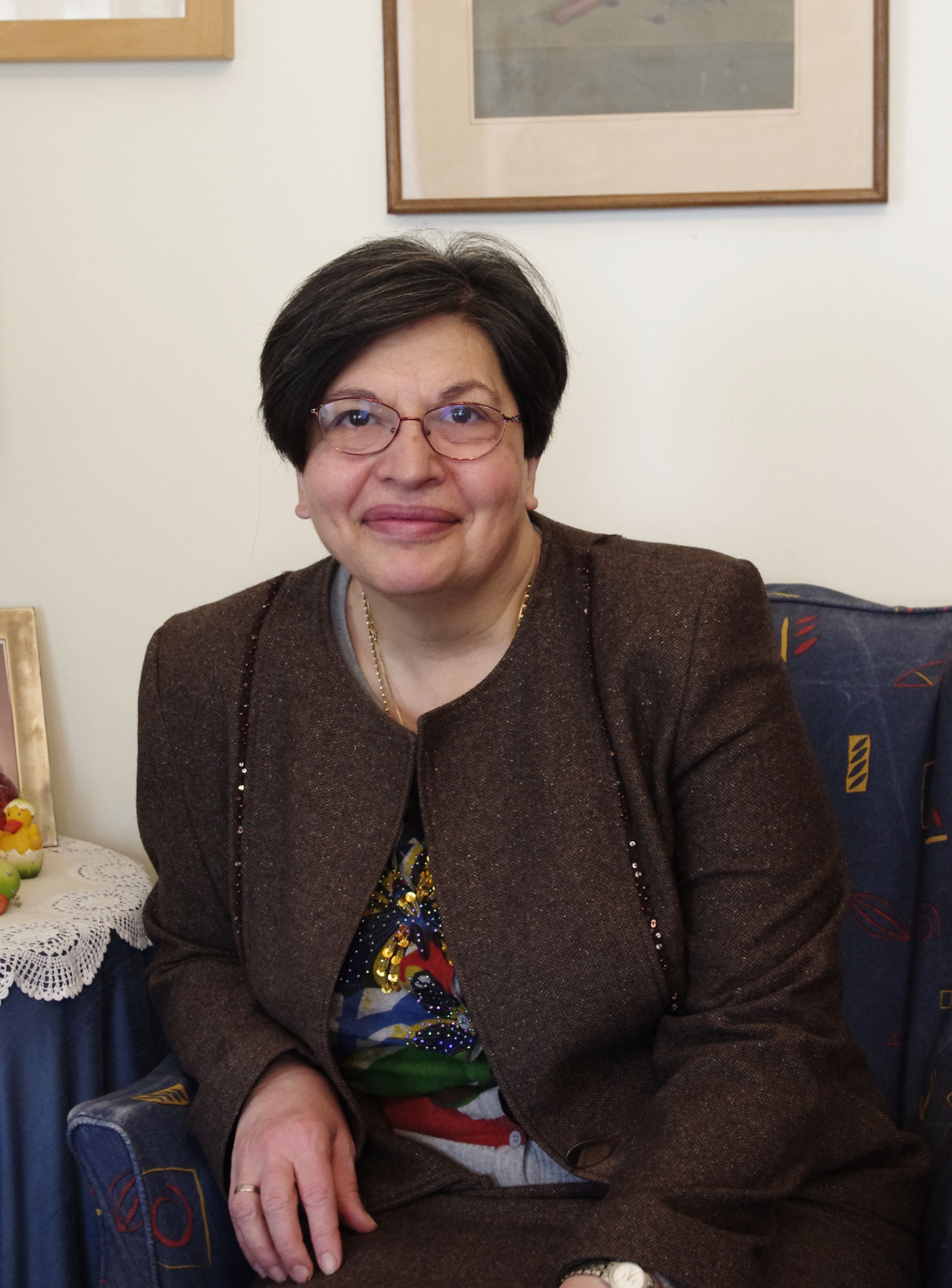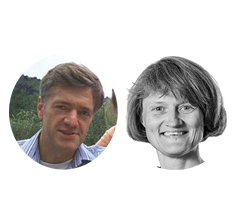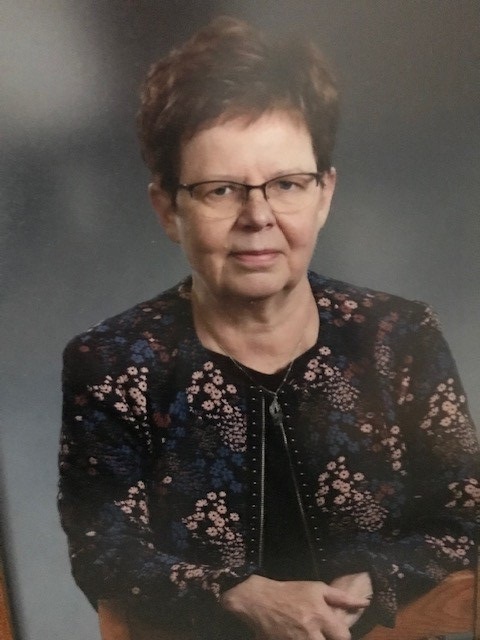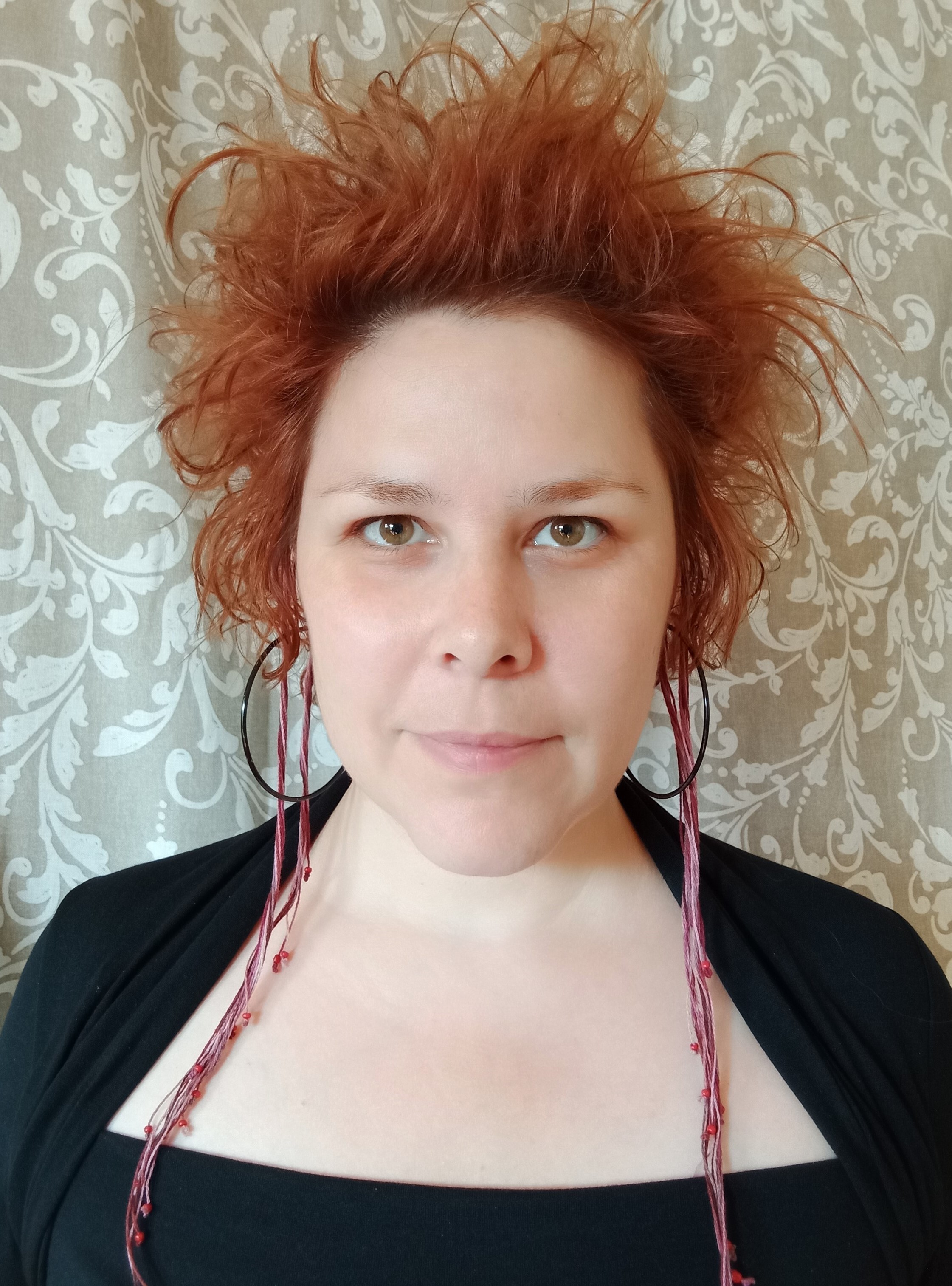
Evropi Efthymiadou
JURE Co-Chair
20 - 21 August 2023
The 27th JURE 2023 Pre-Conference invites Junior Researchers from around the world to engage in compelling discussions on educational research. JURE 2023 offers early career researchers a first academic conference experience and the opportunity to meet colleagues from across the globe.
Dear Delegates,
Welcome to the JURE 2023!
We would like to share our excitement for hosting in Thessaloniki a vibrant community of PhD candidates and early career researchers – the emerging future of EARLI. With the JURE conference we aspire to provide an environment to celebrate everyone’s potential, insights, and fresh perspectives that shape educational research.
Amidst the emerging challenges of our era, our theme, "Education as a Hope in Uncertain Times," resonates profoundly. Through junior researchers’ efforts and dedication, we envision a brighter future, where education empowers minds and societies.
Among JURE aims is to serve as a space for networking and collaboration, especially valuable for those launching their careers. We believe that engagement with peers and experts will help to develop connections and bonds, which will positively shape the professional pathway of junior researchers.
Let's embark on a journey of exploration together, enriching our understanding of education and stimulating collaborations. We hope that this experience will inspire each other in the pursuit of educational excellence and strengthen our shared commitment to transformative education.
We wish you a memorable stay in Thessaloniki!

JURE Co-Chair

JURE Co-Chair
"Education as a Hope in Uncertain Times"
We are living in times when seemingly apparent certainties appear to be challenged by phenomena such as technological advancements, rapid transformations of the labor market, ‘redefinition’ of human communication, migration and population mobility, socioeconomic downturns, political instability, and democratic values under dispute. Education per se is constantly changing, modifying or redefining learning and teaching environments from very early age through the life span.
In addition to all the above challenges, the COVID-19 pandemic that we currently experience has created unprecedented changes in human life and further increased uncertainty on a worldwide scale.
Education was highly disrupted and the learning process massively changed from face-to-face to online. Students, teachers, and parents face several challenges, in coping with these changes and in adapting to these new societal, economic, and educational settings.
Educational researchers are challenged to decode the increased complexity of educational processes at times of global change and uncertainty and to introduce evidence-based practices and reforms to educational policy makers. Evidence-based knowledge can bring some certainty to the uncertainty that educators, students and families currently face. Education research can bring Hope that schools (including all institutions providing education for all age groups) will be able to foster in students the skills to evaluate, critically think and acquire knowledge from various sources. Hope that schools will educate cognitively, metacognitively and motivationally active students, who can choose meaningful learning goals, plan, and monitor their learning behavior, strive towards desired goals attainment, produce novel ideas, provide creative and environment-friendly solutions. Hope that schools will promote socio-emotional competencies such as communication and collaboration skills, intercultural understanding, conflict resolution, intrinsic motivation, emotional understanding and regulation, psychological well-being, and resilience. Hope that educators themselves will be accordingly educated in our changing world so that they will be aware both of the role of societal change in their profession and of their own role in the societal change, be able to broaden their professional identity, to include new roles and responsibilities and be intrinsically motivated to build adaptive learning environments. Hope that schools will become forces for positive changes to the society.
Consult the full JURE 2023 Conference Programme and Book of Abstracts below.
-
-
at the Ceremony Hall of the University of Macedonia (UOM_CH).
-
Domain Lifelong Learning
Participants
-
-
SIG 16 invited symposium
SIG SIG 16 - Metacognition and Self-Regulated Learning
Domain Learning and Instructional Technology
Participants
SIG SIG 16 - Metacognition and Self-Regulated Learning
Domain Learning and Social Interaction
Participants
SIG SIG 16 - Metacognition and Self-Regulated Learning
Domain Motivational, Social and Affective Processes
Participants
SIG SIG 16 - Metacognition and Self-Regulated Learning
Domain Learning and Instructional Technology
Participants
Domain Higher Education
Participants
SIG SIG 08 - Motivation and Emotion
Domain Higher Education
Participants
SIG SIG 08 - Motivation and Emotion
Domain Higher Education
Participants
SIG SIG 04 - Higher Education
Domain Higher Education
Participants
SIG SIG 11 - Teaching and Teacher Education
Domain Teaching and Teacher Education
Participants
SIG SIG 11 - Teaching and Teacher Education
Domain Teaching and Teacher Education
Participants
SIG SIG 11 - Teaching and Teacher Education
Domain Teaching and Teacher Education
Participants
SIG SIG 20 - Inquiry Learning
Domain Teaching and Teacher Education
Participants
SIG SIG 22 - Neuroscience and Education
Domain Cognitive Science
Participants
SIG SIG 11 - Teaching and Teacher Education
Domain Teaching and Teacher Education
Participants
SIG SIG 18 - Educational Effectiveness and Improvement
Domain Teaching and Teacher Education
Participants
Domain Learning and Social Interaction
Participants
SIG SIG 06 - Instructional Design
Domain Instructional Design
Participants
Participants
SIG SIG 08 - Motivation and Emotion
Domain Motivational, Social and Affective Processes
Participants
SIG SIG 08 - Motivation and Emotion
Domain Motivational, Social and Affective Processes
Participants
SIG SIG 04 - Higher Education
Domain Higher Education
Participants
SIG SIG 11 - Teaching and Teacher Education
Domain Teaching and Teacher Education
Participants
SIG SIG 11 - Teaching and Teacher Education
Domain Teaching and Teacher Education
Participants
SIG SIG 04 - Higher Education
Domain Higher Education
Participants
SIG SIG 26 - Argumentation, Dialogue and Reasoning
Domain Learning and Social Interaction
Participants
SIG SIG 18 - Educational Effectiveness and Improvement
Domain Teaching and Teacher Education
Participants
SIG SIG 26 - Argumentation, Dialogue and Reasoning
Domain Teaching and Teacher Education
Participants
SIG SIG 11 - Teaching and Teacher Education
Domain Teaching and Teacher Education
Participants
SIG SIG 14 - Learning and Professional Development
Domain Lifelong Learning
Participants
SIG SIG 11 - Teaching and Teacher Education
Domain Higher Education
Participants
SIG SIG 16 - Metacognition and Self-Regulated Learning
Participants
SIG SIG 05 - Learning and Development in Early Childhood
Domain Assessment and Evaluation
Participants
SIG SIG 08 - Motivation and Emotion
Domain Motivational, Social and Affective Processes
Participants
SIG SIG 08 - Motivation and Emotion
Domain Motivational, Social and Affective Processes
Participants
SIG SIG 08 - Motivation and Emotion
Domain Motivational, Social and Affective Processes
Participants
SIG SIG 08 - Motivation and Emotion
Domain Motivational, Social and Affective Processes
Participants
SIG SIG 04 - Higher Education
Domain Higher Education
Participants
Domain Learning and Instructional Technology
Participants
SIG SIG 28 - Play, Learning and Development
Domain Cognitive Science
Participants
SIG SIG 06 - Instructional Design
Domain Instructional Design
Participants
SIG SIG 16 - Metacognition and Self-Regulated Learning
Participants
SIG SIG 02 - Comprehension of Text and Graphics
Domain Learning and Instructional Technology
Participants
SIG SIG 07 - Technology-Enhanced Learning And Instruction
Domain Learning and Instructional Technology
Participants
SIG SIG 14 - Learning and Professional Development
Participants
Domain Higher Education
Participants
-
-
SIG SIG 01 - Assessment and Evaluation
Domain Assessment and Evaluation
Participants
SIG SIG 18 - Educational Effectiveness and Improvement
Domain Instructional Design
Participants
SIG SIG 01 - Assessment and Evaluation
Domain Assessment and Evaluation
Participants
SIG SIG 11 - Teaching and Teacher Education
Domain Teaching and Teacher Education
Participants
SIG SIG 11 - Teaching and Teacher Education
Domain Teaching and Teacher Education
Participants
SIG SIG 14 - Learning and Professional Development
Domain Lifelong Learning
Participants
SIG SIG 11 - Teaching and Teacher Education
Domain Teaching and Teacher Education
Participants
SIG SIG 11 - Teaching and Teacher Education
Domain Culture, Morality, Religion and Education
Participants
Domain Lifelong Learning
Participants
SIG SIG 15 - Special Educational Needs
Domain Learning and Special Education
Participants
SIG SIG 03 - Conceptual Change
Domain Teaching and Teacher Education
Participants
Domain Lifelong Learning
Participants
SIG SIG 07 - Technology-Enhanced Learning And Instruction
Domain Learning and Instructional Technology
Participants
SIG SIG 07 - Technology-Enhanced Learning And Instruction
Domain Learning and Instructional Technology
Participants
SIG SIG 08 - Motivation and Emotion
Domain Motivational, Social and Affective Processes
Participants
SIG SIG 18 - Educational Effectiveness and Improvement
Domain Motivational, Social and Affective Processes
Participants
SIG SIG 04 - Higher Education
Domain Higher Education
Participants
SIG SIG 08 - Motivation and Emotion
Domain Motivational, Social and Affective Processes
Participants
SIG SIG 18 - Educational Effectiveness and Improvement
Domain Instructional Design
Participants
SIG SIG 22 - Neuroscience and Education
Domain Cognitive Science
Participants
SIG SIG 04 - Higher Education
Domain Cognitive Science
Participants
SIG SIG 05 - Learning and Development in Early Childhood
Domain Cognitive Science
Participants
SIG SIG 05 - Learning and Development in Early Childhood
Domain Learning and Social Interaction
Participants
SIG SIG 21 - Learning and Teaching in Culturally Diverse Settings
Domain Culture, Morality, Religion and Education
Participants
SIG SIG 05 - Learning and Development in Early Childhood
Domain Learning and Instructional Technology
Participants
SIG SIG 11 - Teaching and Teacher Education
Domain Teaching and Teacher Education
Participants
SIG SIG 01 - Assessment and Evaluation
Domain Assessment and Evaluation
Participants
SIG SIG 01 - Assessment and Evaluation
Domain Assessment and Evaluation
Participants
SIG SIG 01 - Assessment and Evaluation
Domain Assessment and Evaluation
Participants
SIG SIG 20 - Inquiry Learning
Domain Instructional Design
Participants
SIG SIG 01 - Assessment and Evaluation
Domain Assessment and Evaluation
Participants
SIG SIG 01 - Assessment and Evaluation
Domain Assessment and Evaluation
Participants
SIG SIG 11 - Teaching and Teacher Education
Domain Teaching and Teacher Education
Participants
SIG SIG 04 - Higher Education
Domain Assessment and Evaluation
Participants
SIG SIG 01 - Assessment and Evaluation
Domain Teaching and Teacher Education
Participants
SIG SIG 11 - Teaching and Teacher Education
Domain Instructional Design
Participants
SIG SIG 13 - Moral and Democratic Education
Domain Learning and Social Interaction
Participants
SIG SIG 10 - Social Interaction in Learning and Instruction
Domain Instructional Design
Participants
Domain Educational Policy and Systems
Participants
SIG SIG 08 - Motivation and Emotion
Domain Motivational, Social and Affective Processes
Participants
SIG SIG 08 - Motivation and Emotion
Domain Motivational, Social and Affective Processes
Participants
SIG SIG 16 - Metacognition and Self-Regulated Learning
Domain Lifelong Learning
Participants
SIG SIG 16 - Metacognition and Self-Regulated Learning
Domain Cognitive Science
Participants
-
-
SIG 27 invited symposium
SIG SIG 27 - Online Measures of Learning Processes
Domain Learning and Social Interaction
Participants
SIG SIG 27 - Online Measures of Learning Processes
Domain Learning and Social Interaction
Participants
SIG SIG 27 - Online Measures of Learning Processes
Domain Learning and Social Interaction
Participants
SIG SIG 27 - Online Measures of Learning Processes
Domain Learning and Social Interaction
Participants
SIG SIG 04 - Higher Education
Domain Higher Education
Participants
SIG SIG 01 - Assessment and Evaluation
Domain Assessment and Evaluation
Participants
SIG SIG 24 - Researcher Education and Careers
Domain Higher Education
Participants
SIG SIG 24 - Researcher Education and Careers
Domain Higher Education
Participants
SIG SIG 16 - Metacognition and Self-Regulated Learning
Domain Learning and Instructional Technology
Participants
SIG SIG 08 - Motivation and Emotion
Domain Motivational, Social and Affective Processes
Participants
SIG SIG 04 - Higher Education
Domain Higher Education
Participants
SIG SIG 08 - Motivation and Emotion
Domain Motivational, Social and Affective Processes
Participants
SIG SIG 08 - Motivation and Emotion
Domain Motivational, Social and Affective Processes
Participants
SIG SIG 08 - Motivation and Emotion
Domain Motivational, Social and Affective Processes
Participants
SIG SIG 08 - Motivation and Emotion
Domain Motivational, Social and Affective Processes
Participants
SIG SIG 04 - Higher Education
Domain Higher Education
Participants
SIG SIG 04 - Higher Education
Domain Higher Education
Participants
SIG SIG 04 - Higher Education
Domain Higher Education
Participants
SIG SIG 26 - Argumentation, Dialogue and Reasoning
Domain Higher Education
Participants
SIG SIG 06 - Instructional Design
Domain Instructional Design
Participants
SIG SIG 22 - Neuroscience and Education
Domain Cognitive Science
Participants
SIG SIG 07 - Technology-Enhanced Learning And Instruction
Domain Higher Education
Participants
SIG SIG 14 - Learning and Professional Development
Domain Lifelong Learning
Participants
SIG SIG 10 - Social Interaction in Learning and Instruction
Domain Learning and Instructional Technology
Participants
SIG SIG 26 - Argumentation, Dialogue and Reasoning
Domain Learning and Social Interaction
Participants
SIG SIG 10 - Social Interaction in Learning and Instruction
Domain Learning and Social Interaction
Participants
SIG SIG 10 - Social Interaction in Learning and Instruction
Domain Learning and Social Interaction
Participants
SIG SIG 14 - Learning and Professional Development
Domain Lifelong Learning
Participants
Domain Lifelong Learning
Participants
SIG SIG 12 - Writing
Domain Higher Education
Participants
SIG SIG 12 - Writing
Domain Higher Education
Participants
SIG SIG 11 - Teaching and Teacher Education
Domain Learning and Special Education
Participants
SIG SIG 14 - Learning and Professional Development
Domain Lifelong Learning
Participants
SIG SIG 06 - Instructional Design
Domain Higher Education
Participants
SIG SIG 18 - Educational Effectiveness and Improvement
Domain Educational Policy and Systems
Participants
-
Pre-registration is required to attend this workshop.
Participants
Pre-registration is required to attend this workshop.
Participants
Participants
Participants
Pre-registration is required to attend this workshop.
Participants
Participants
Participants
-
-
-
Participants
Pre-registration is required to attend this workshop.
Participants
Pre-registration is required to attend this workshop.
Participants
Pre-registration is required to attend this workshop.
Participants
Participants
Participants
Participants
-
-
SIG SIG 01 - Assessment and Evaluation
Domain Assessment and Evaluation
Participants
SIG SIG 19 - Religions and Worldviews in Education
Domain Culture, Morality, Religion and Education
Participants
SIG SIG 03 - Conceptual Change
Domain Cognitive Science
Participants
SIG SIG 02 - Comprehension of Text and Graphics
Domain Cognitive Science
Participants
Domain Lifelong Learning
Participants
SIG SIG 13 - Moral and Democratic Education
Domain Motivational, Social and Affective Processes
Participants
SIG SIG 13 - Moral and Democratic Education
Domain Culture, Morality, Religion and Education
Participants
SIG SIG 01 - Assessment and Evaluation
Domain Assessment and Evaluation
Participants
SIG SIG 11 - Teaching and Teacher Education
Domain Teaching and Teacher Education
Participants
SIG SIG 11 - Teaching and Teacher Education
Domain Teaching and Teacher Education
Participants
SIG SIG 18 - Educational Effectiveness and Improvement
Domain Learning and Instructional Technology
Participants
SIG SIG 11 - Teaching and Teacher Education
Domain Teaching and Teacher Education
Participants
SIG SIG 18 - Educational Effectiveness and Improvement
Domain Learning and Instructional Technology
Participants
SIG SIG 15 - Special Educational Needs
Domain Learning and Special Education
Participants
SIG SIG 20 - Inquiry Learning
Domain Cognitive Science
Participants
SIG SIG 15 - Special Educational Needs
Domain Learning and Special Education
Participants
SIG SIG 16 - Metacognition and Self-Regulated Learning
Participants
SIG SIG 04 - Higher Education
Domain Motivational, Social and Affective Processes
Participants
SIG SIG 04 - Higher Education
Domain Higher Education
Participants
SIG SIG 04 - Higher Education
Domain Higher Education
Participants
SIG SIG 10 - Social Interaction in Learning and Instruction
Domain Learning and Social Interaction
Participants
SIG SIG 14 - Learning and Professional Development
Domain Lifelong Learning
Participants
SIG SIG 07 - Technology-Enhanced Learning And Instruction
Domain Higher Education
Participants
SIG SIG 22 - Neuroscience and Education
Domain Cognitive Science
Participants
SIG SIG 15 - Special Educational Needs
Domain Learning and Special Education
Participants
SIG SIG 15 - Special Educational Needs
Domain Learning and Special Education
Participants
SIG SIG 10 - Social Interaction in Learning and Instruction
Domain Learning and Social Interaction
Participants
Participants
SIG SIG 11 - Teaching and Teacher Education
Domain Teaching and Teacher Education
Participants
SIG SIG 01 - Assessment and Evaluation
Domain Assessment and Evaluation
Participants
SIG SIG 11 - Teaching and Teacher Education
Domain Learning and Instructional Technology
Participants
SIG SIG 11 - Teaching and Teacher Education
Domain Teaching and Teacher Education
Participants
SIG SIG 11 - Teaching and Teacher Education
Domain Teaching and Teacher Education
Participants
SIG SIG 07 - Technology-Enhanced Learning And Instruction
Domain Learning and Instructional Technology
Participants
SIG SIG 08 - Motivation and Emotion
Domain Developmental Aspects of Instruction
Participants
SIG SIG 08 - Motivation and Emotion
Domain Motivational, Social and Affective Processes
Participants
SIG SIG 08 - Motivation and Emotion
Domain Motivational, Social and Affective Processes
Participants
SIG SIG 08 - Motivation and Emotion
Domain Motivational, Social and Affective Processes
Participants
SIG SIG 08 - Motivation and Emotion
Domain Motivational, Social and Affective Processes
Participants
SIG SIG 08 - Motivation and Emotion
Domain Motivational, Social and Affective Processes
Participants
SIG SIG 08 - Motivation and Emotion
Domain Motivational, Social and Affective Processes
Participants
Domain Motivational, Social and Affective Processes
Participants
SIG SIG 15 - Special Educational Needs
Domain Learning and Special Education
Participants
SIG SIG 05 - Learning and Development in Early Childhood
Domain Instructional Design
Participants
SIG SIG 15 - Special Educational Needs
Domain Educational Policy and Systems
Participants
Domain Motivational, Social and Affective Processes
Participants
-
-
SIG SIG 08 - Motivation and Emotion
Domain Motivational, Social and Affective Processes
Participants
SIG SIG 04 - Higher Education
Domain Higher Education
Participants
SIG SIG 01 - Assessment and Evaluation
Domain Teaching and Teacher Education
Participants
SIG SIG 18 - Educational Effectiveness and Improvement
Participants
Participants
Participants
Domain Cognitive Science
Participants
SIG SIG 16 - Metacognition and Self-Regulated Learning
Domain Assessment and Evaluation
Participants
SIG SIG 12 - Writing
Domain Cognitive Science
Participants
SIG SIG 12 - Writing
Participants
SIG SIG 12 - Writing
Participants
SIG SIG 08 - Motivation and Emotion
Domain Motivational, Social and Affective Processes
Participants
SIG SIG 08 - Motivation and Emotion
Domain Learning and Social Interaction
Participants
SIG SIG 27 - Online Measures of Learning Processes
Domain Learning and Social Interaction
Participants
SIG SIG 17 - Methods in Learning Research
Domain Motivational, Social and Affective Processes
Participants
SIG SIG 18 - Educational Effectiveness and Improvement
Domain Educational Policy and Systems
Participants
SIG SIG 04 - Higher Education
Domain Higher Education
Participants
SIG SIG 11 - Teaching and Teacher Education
Domain Educational Policy and Systems
Participants
SIG SIG 17 - Methods in Learning Research
Domain Educational Policy and Systems
Participants
SIG SIG 14 - Learning and Professional Development
Domain Developmental Aspects of Instruction
Participants
SIG SIG 11 - Teaching and Teacher Education
Domain Teaching and Teacher Education
Participants
SIG SIG 28 - Play, Learning and Development
Domain Educational Policy and Systems
Participants
Domain Educational Policy and Systems
Participants
SIG SIG 16 - Metacognition and Self-Regulated Learning
Domain Motivational, Social and Affective Processes
Participants
Participants
SIG SIG 16 - Metacognition and Self-Regulated Learning
Domain Instructional Design
Participants
SIG SIG 16 - Metacognition and Self-Regulated Learning
Domain Motivational, Social and Affective Processes
Participants
SIG SIG 03 - Conceptual Change
Domain Instructional Design
Participants
SIG SIG 16 - Metacognition and Self-Regulated Learning
Domain Higher Education
Participants
SIG SIG 04 - Higher Education
Domain Higher Education
Participants
Domain Teaching and Teacher Education
Participants
SIG SIG 10 - Social Interaction in Learning and Instruction
Domain Learning and Social Interaction
Participants
SIG SIG 11 - Teaching and Teacher Education
Domain Teaching and Teacher Education
Participants
SIG SIG 01 - Assessment and Evaluation
Domain Educational Policy and Systems
Participants
SIG SIG 10 - Social Interaction in Learning and Instruction
Domain Learning and Instructional Technology
Participants
SIG SIG 11 - Teaching and Teacher Education
Domain Teaching and Teacher Education
Participants
Domain Motivational, Social and Affective Processes
Participants
Domain Culture, Morality, Religion and Education
Participants
Domain Lifelong Learning
Participants
SIG SIG 11 - Teaching and Teacher Education
Domain Teaching and Teacher Education
Participants
Participants
SIG SIG 06 - Instructional Design
Domain Instructional Design
Participants
SIG SIG 08 - Motivation and Emotion
Domain Motivational, Social and Affective Processes
Participants
SIG SIG 22 - Neuroscience and Education
Domain Cognitive Science
Participants
SIG SIG 18 - Educational Effectiveness and Improvement
Domain Instructional Design
Participants
SIG SIG 11 - Teaching and Teacher Education
Domain Teaching and Teacher Education
Participants
SIG SIG 11 - Teaching and Teacher Education
Domain Teaching and Teacher Education
Participants
SIG SIG 11 - Teaching and Teacher Education
Domain Teaching and Teacher Education
Participants
SIG SIG 11 - Teaching and Teacher Education
Domain Teaching and Teacher Education
Participants
-
-
SIG 8 invited symposium
SIG SIG 08 - Motivation and Emotion
Domain Motivational, Social and Affective Processes
Participants
SIG SIG 08 - Motivation and Emotion
Domain Motivational, Social and Affective Processes
Participants
SIG SIG 08 - Motivation and Emotion
Domain Motivational, Social and Affective Processes
Participants
SIG SIG 11 - Teaching and Teacher Education
Domain Teaching and Teacher Education
Participants
SIG SIG 11 - Teaching and Teacher Education
Domain Teaching and Teacher Education
Participants
SIG SIG 04 - Higher Education
Domain Higher Education
Participants
SIG SIG 11 - Teaching and Teacher Education
Domain Teaching and Teacher Education
Participants
SIG SIG 05 - Learning and Development in Early Childhood
Domain Teaching and Teacher Education
Participants
SIG SIG 28 - Play, Learning and Development
Domain Teaching and Teacher Education
Participants
SIG SIG 05 - Learning and Development in Early Childhood
Participants
SIG SIG 05 - Learning and Development in Early Childhood
Domain Learning and Special Education
Participants
SIG SIG 12 - Writing
Domain Assessment and Evaluation
Participants
SIG SIG 01 - Assessment and Evaluation
Domain Assessment and Evaluation
Participants
SIG SIG 15 - Special Educational Needs
Domain Educational Policy and Systems
Participants
SIG SIG 15 - Special Educational Needs
Domain Learning and Special Education
Participants
SIG SIG 15 - Special Educational Needs
Domain Learning and Special Education
Participants
SIG SIG 15 - Special Educational Needs
Domain Learning and Special Education
Participants
SIG SIG 15 - Special Educational Needs
Domain Learning and Special Education
Participants
SIG SIG 26 - Argumentation, Dialogue and Reasoning
Domain Learning and Special Education
Participants
SIG SIG 14 - Learning and Professional Development
Domain Learning and Special Education
Participants
SIG SIG 11 - Teaching and Teacher Education
Domain Teaching and Teacher Education
Participants
SIG SIG 11 - Teaching and Teacher Education
Domain Teaching and Teacher Education
Participants
SIG SIG 11 - Teaching and Teacher Education
Domain Teaching and Teacher Education
Participants
SIG SIG 17 - Methods in Learning Research
Domain Assessment and Evaluation
Participants
SIG SIG 05 - Learning and Development in Early Childhood
Domain Teaching and Teacher Education
Participants
Participants
SIG SIG 11 - Teaching and Teacher Education
Domain Teaching and Teacher Education
Participants
SIG SIG 11 - Teaching and Teacher Education
Domain Teaching and Teacher Education
Participants
SIG SIG 21 - Learning and Teaching in Culturally Diverse Settings
Domain Teaching and Teacher Education
Participants
SIG SIG 11 - Teaching and Teacher Education
Domain Teaching and Teacher Education
Participants
SIG SIG 26 - Argumentation, Dialogue and Reasoning
Domain Learning and Social Interaction
Participants
SIG SIG 21 - Learning and Teaching in Culturally Diverse Settings
Domain Teaching and Teacher Education
Participants
SIG SIG 18 - Educational Effectiveness and Improvement
Domain Teaching and Teacher Education
Participants
SIG SIG 07 - Technology-Enhanced Learning And Instruction
Domain Learning and Instructional Technology
Participants
SIG SIG 04 - Higher Education
Domain Higher Education
Participants
SIG SIG 08 - Motivation and Emotion
Domain Motivational, Social and Affective Processes
Participants
SIG SIG 08 - Motivation and Emotion
Domain Motivational, Social and Affective Processes
Participants
SIG SIG 16 - Metacognition and Self-Regulated Learning
Domain Higher Education
Participants
SIG SIG 08 - Motivation and Emotion
Domain Motivational, Social and Affective Processes
Participants
Domain Learning and Social Interaction
Participants
SIG SIG 05 - Learning and Development in Early Childhood
Domain Learning and Instructional Technology
Participants
-
Participants
-
at the Ceremony Hall of the University of Macedonia (UOM_CH).
-
Thessaloniki is the largest academic hub and research center in Greece. Its 150K strong academic community comprises of 3 major public universities, including the largest in SE Europe, 9 international private colleges, 9 world respected science centers, 4 major incubators, the biggest ones in Greece, and a vibrant startup community.

Aristotle University of Thessaloniki (AUTh) is the largest university in Greece and SE Europe founded in 1925 (about 80,000 undergraduate and postgraduate students currently study in AUTh). AUTh is widely recognized as a vibrant center of learning and research which draws its inspiration from a long tradition of academic achievement. It is a comprehensive institution with 41 Faculties and Schools covering all scientific fields, ranging from natural and technological to social and health sciences, arts, and humanities. AUTh has a strong international profile being actively involved in European and international networks.

University of Macedonia (UoM) comprises 8 Departments (with about 10.000 students) specializing in economic and social sciences. Now in its 7th decade of operation, UoM is developing into an extroverted, innovative, and bold academic institution whose priority is to deliver efficient teaching and research on clear and transparent quality -criteria. It is a well-organized institution, functional and environmentally-friendly, committed to the welfare of its -students, acknowledged by the local and the international community.
Thessaloniki, Greece’s second tier city and capital of the region of Central Macedonia is located on the Thermaic Gulf at the northwestern corner of the Aegean Sea. It is a lively and generous urban center that is both historic and avant-garde.
Named after the sister of Alexander the Great, daughter of Phillip II, back at the beginning of the Hellenistic times, Thessaloniki has always been the epicenter of great development and events, being a principal gateway from the Mediterranean to the Balkans and Central Europe. Throughout its history Thessaloniki has been a melting pot of diverse cultures, religions and traditions and the city’s multi-cultural heritage and profile were shaped by the work and deeds of emperors, saints, apostles, philosophers and thinkers, but also by its local residents, its refugees and immigrants.
Thessaloniki, sometimes covered by the thick mist, sometimes stormed by the heady wind “Vardaris”, yet always defined by its flairs and flavors, is now adays an economic, educational, and cultural center, a focal point for the Balkans and a geographic landmark between the eastern & western civilization, bridging North and South, East and West. Suffused with stories of joy and sorrow of the past, today the city enjoys a vibrant urban life, stimulated by the largest student community in Greece, the offerings of numerous museums and other cultural organisations, and enhanced by the exquisite physical location that through time has enabled openness and inspiration.
EARLI 2023 has two main local host organisations. The Aristotle University of Thessaloniki is the largest university in Greece (over 80.000 students) and is internationally recognized as a dynamic center of learning and research. The University has hosted a great number of international conferences and scientific meetings in all thematic areas very successfully. The University of Macedonia is the second university in the city of Thessaloniki specialized in economic and social sciences (over 12.000 students) and organizes various academic initiatives and events throughout the year. Both Universities have contributed Thessaloniki to become a significant academic hub in Southeast Europe, Eastern Mediterranean, and Black Sea countries.
Thessaloniki’s history, academic status and contemporary identity form the context for a hospitable and exciting EARLI 2023 destination: city-centered conference venues, a walk on the waterfront, the city’s atmosphere and famous gastronomy, and many more...
Visit the interactive map of Thessaloniki to get to know its most famous locations.
Submissions for JURE 2023 have now closed.
Consult the call for papers.
Consult the submission guidelines.
Consult the review rationale.
We welcome the following submission types:

Paper sessions consist of four thematically clustered paper presentations, followed by a discussion with the audience. It is important that empirical papers have data and results or they will not be accepted. Theoretical papers, which provide background research, specific evidence, analytical thinking and/or recommendations on specific themes and topics, are also welcome.
Paper sessions are scheduled for 90 minutes. Four presenters are given 15 minutes presentation time followed by 5 minutes for questions.

Interactive poster sessions involve up to eight posters. A short presentation of about 3 minutes for each poster is given to an audience gathered as a group. After the authors’ brief presentation, an in-depth discussion between them and the audience follows. The poster sessions offer researchers the chance to present their work in a visual format and offer more opportunities for interaction and discussion.
Poster sessions are scheduled for 90 minutes. Eight presenters are each offered a brief presentation slot to introduce the poster (max. 3 minutes), after which there will be time to discuss each poster in greater depth, in smaller groups.

Roundtable sessions offer opportunities for a more discursive exploration of research issues. This may well involve discussion of work in progress. The presenters elaborate on their emerging data and theory, and invite the participants to contribute to a discussion on potential challenges. Four presenters will explain and discuss their research one after another.
A roundtable session is scheduled for 90 minutes. Each presenter has five minutes to introduce his/her project and raise one or two open questions. Fifteen minutes are intended for discussion.
THANK YOU TO OUR 471 REVIEWERS!
The JURE 2023 reviewers help to ensure the scientific quality of the conference. The review process is the most important aspect of organising the JURE conference, as the outcome of this process will determine the quality of the participants' experience. For JURE 2023, each contribution was assessed by both a senior and a junior researcher.
The JURE 2023 International Organising Committee was tasked with determining the final acceptance and rejection thresholds. Consult the review rationale for JURE 2023 below.

Please note that membership is required to join the EARLI 2023 and/or JURE 2023 conferences. If you are not a member, you will be asked to purchase your membership first before being able to complete your conference registration. The fees mentioned below do not include your membership dues.
The reduced rate applies to JURE members, Longstanding members and EARLI members currently working in low GDP countries (consult the list of qualifying countries). Also included in these rates are SIG Coordinators, EC members, Past Presidents of EARLI and JURE 2023 workshop leaders.
The regular rate applies to full EARLI members who do not meet the requirements for the reduced rate, as described above.
Conference fees include access to all conference sessions, coffee breaks and lunches and the opening reception. Fees do not include tickets for the conference dinner or a printed programme book, which can be purchased together with your conference registration.
Consult our guidelines to optimally prepare for your presentation at JURE 2023:
The EARLI Executive Committee wishes to support conference participation for researchers who may otherwise not have the financial means to attend the conference. The JURE 2023 Elsevier Award is kindly offered by Elsevier in the form of waived registration for the EARLI and JURE 2023 conference.
Applications for the JURE 2023 Elsevier Award have now closed.

University of Bern, CH
Well-being in School: How to make well-being an integral part of school life?
Aristotle University of Thessaloniki, GR
Critical Thinking as a Lifelong Learning Goal
The JURE Conference is known for its interactive workshops with leading senior researchers, offering in-depth insider knowledge about a number of topics particularly relevant to Junior Researchers.
Please note that pre-registration is required for the following workshops
Tickets can be added to your registration, until fully booked.

Aristotle University of Thessaloniki, GR
Publishing a paper: The author, the reviewer, and the editor

University of Regensburg, DE // University of Southern Denmark, DK
Academic Publishing

University of St.Gallen, Switzerland
"I've always wanted to be part of a podcast": Enhancing the Sustainability and Participation of the EARLI Research Stories Podcast

Monash University, AUS
Educator-child interactions and childhood social and emotional learning: A public health approach

Stanford University, US
Presenting at Conferences: Preparing a Proposal and Preparing and Giving a Presentation

Rijksuniversiteit Groningen, NL
Opening the Black Box of School Interventions: Good Methodological Practices from the Design to the Evaluation

Aristotle University of Thessaloniki, GR
Latent Class Analysis: Applications to Learning and Instruction Research

University College London, UK
An Introduction to Eye Tracking

University of Turku, FI
Socially Sustainable Learning Communities as a Hope in Uncertain Times: Educational and Legal Perspectives

University of Graz, AT // University of Leiden, NL
Gazing at the Learning Brain: a Reflective and Interactive Overview of Neuroscience and Education

Ruhr University Bochum, DE
An Introduction to Multilevel Analysis with R

Maastricht University
Implementing Open Science Practices in Qualitative Research Methods
Behind the scenes, we are working hard to provide you with a real taste of Thessaloniki in the form of exciting social events, visits and tours. These will be planned before, during and even after the conference! Join us for walking tours through the city center or a visit to Mount Olympus (Saturday 19 August) and a proper post-conference camping visit to Halkidiki (Sunday 27 - Monday 28 August). And of course, the JURE 2023 Conference Dinner is a must for all participants to sit back and relax after a long conference day. Tickets are already available for purchase at € 35 and can be ordered with your conference registration.
We recommend you to take this into account when planning your travel to Greece!
Tickets are available for purchase when registering for the conference. If you have already registered simply click "order extra items" in your EARLI account.
Find out more about our social events below. Please note that the hiking trip to Mount Olympus has currently sold out. You can sign up for the waitlist to let us know that you are still interested to join.


DESTINATION / TRAVELING / ACCOMMODATION
More information about Thessaloniki as the host city, traveling to the destination, recommended bookings, discounted accommodation options and conference venue information can be found on the local webpage!
Submissions Open
Submission Deadline
Review Deadline
Registrations Open
Review Results Announced
Early Bird Deadline
Presenter Registration Deadline
JURE 2023
EARLI 2023
Evropi Efthymiadou
JURE 2023 Conference Chair
Aristotle University of Thessaloniki, Greece
Dimitrios Moustakas
JURE 2023 Conference Chair
University of Macedonia, Greece
Annika Martin
University of Vienna, Austria
Barbara Balaž
Catholic University of Croatia, Croatia
Charleen Brand
Ruhr University Bochum, Germany
Rui Maio
University of Porto, Portugal
Sofie Van Ostaijen
Ghent University, Belgium
Local Organising Committee
Anastasia Mavridou
University of Macedonia
Athena Daniilidou
University of Macedonia
Georgia Stavropoulou
Aristotle University of Thessaloniki
Katerina Nerantzaki
Aristotle University of Thessaloniki
Konstantina Falanga
Aristotle University of Thessaloniki
Meropi Simou
Aristotle University of Thessaloniki
Tania Vieites
University of A Coruña
JURE 2023 is dedicated to providing an enjoyable and safe conference experience for everyone. As a community, we value and respect all people, regardless of race, ethnicity, gender identity, sexual orientation, religion, neurodiversity, disability, or any other aspect that, in fact, makes our community diverse and more inclusive. Both the JURE 2023 organisers and the EARLI EC will not tolerate vilification, abuse, or harassment in any form.
In the unpleasant situation you feel unsafe or harassed, notice that someone else is being harassed, or have any other concerns, contact our Safe Conference Care Team through the following ways:
Consult our full code of conduct for the JURE 2023 conference below.
Feel free to contact any of the Safe Conference Care Team members during the EARLI 2023 conference. The team is comprised of representatives of the various parties involved with the organisation of the EARLI 2023 conference.
Maria Platsidou (Chair)
EARLI 2023 Vice-President
EARLI 2023 Local Organising Committee
Lefkothea Kartasidou, UoM
Lito Michalopoulou, AUTh
Gender and Equality Committees of the Hosting Universities
Zoe Kantaridou, UoM
Panayiota Metallidou, AUTh
JURE 2023
Evropi Efthymiadou, AUTh
Meropi Simou, AUTh
EARLI EC member
Jo Van Herwegen, UCL
EARLI Office Member
Ruben Hendrickx
EARLI member
Martin Daumiller Augsburg University, Germany
Advisor in Human Rights Issues
Kalliopi Hainoglou, UoM
We wish to thank the following sponsors and exhibitors:

Elsevier provides information and analytics that help institutions and professionals progress science, advance healthcare and improve performance. We help researchers make new discoveries, collaborate with their colleagues, and give them the knowledge they need to find funding. Our goal is to expand the boundaries of knowledge for the benefit of humanity.

LIfBi provides longitudinal data for empirical educational research. This includes the National Educational Panel Study (NEPS), the largest long-term educational study in Germany. Our own research focuses on competence development, structures and conditions of education, social inequalities over the life course, educational outcomes and survey methodology.